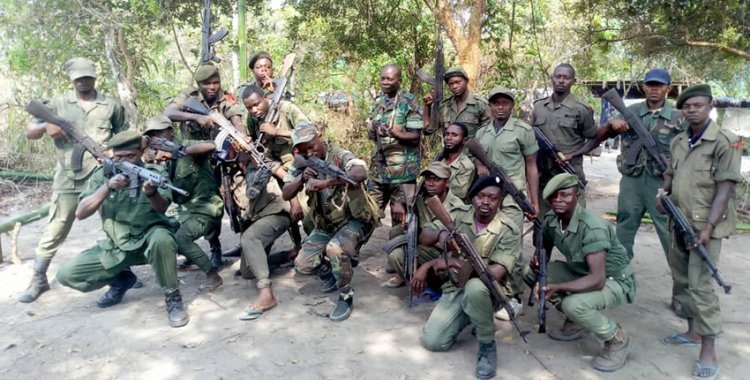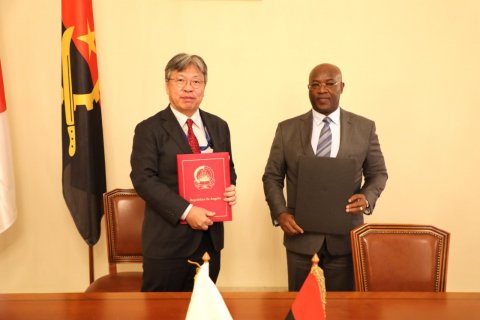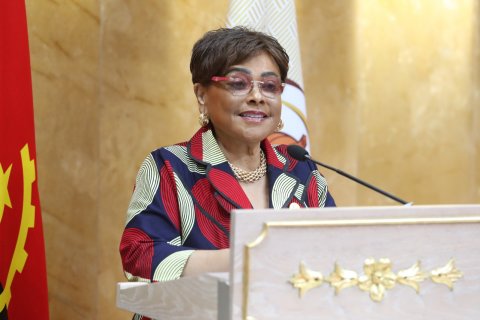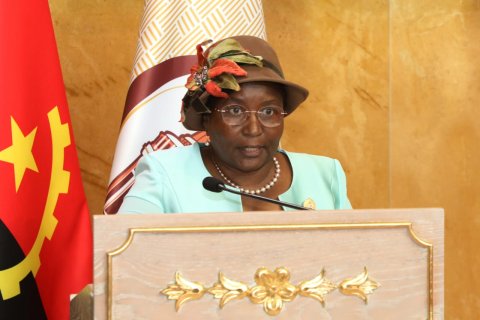At a press conference on Tuesday, military and security chiefs of FLEC-FAC gave the reasons for their dissent, justified by food difficulties, suffering in the forests and unfulfilled promises by the organization's leadership.
These are the deputy chief of staff of FLEC, Martins Chinkoko, the head of security, Zingo Zon, the commander of the Nkuto military region, João Maria Dunge Xerife, the secretary of the northern front Bucu Zau and Necuto, António Gabriel, the deputy head of security, Alberto Paquita, and the commander of the fourth military region of the southern front, Francisco Candoli.
"So much suffering, eating with difficulty (...), that's why we returned to our land to serve the Government of Angola, there is a lot of suffering there, we can't take it," said Martins Chinkoko, deputy chief of staff of FLEC-FAC, in statements to Angolan Public Television (TPA), highlighting that the war materials used in their actions are obsolete.
"We have suffered a lot in the forests," added Martins Chinkoko, highlighting the years he worked with Jean-Claude Nzita and Emmanuel Nzita, leaders of FLEC-FAC.
In turn, António Gabriel, secretary of the Buco-Zau and Necuto northern front, said that they do not want to see more blood spilled and want peace.
"There has been too much blood spilled, peace is what we want (...) we want to work to help families," he stressed.
"As soon as I arrived here, I was happy with the way the father [Government] welcomed me, I am very satisfied", declared João Maria Xerife.
According to Zing Zong, from now on they are available to work with the Government, so that the remaining members of the organization also leave FLEC-FA, they just need to make the appeal.
"We are requesting support from the Government so that the group can enter Cabinda without difficulty," he said.
The Government issued a protest note, denying the alleged ceasefire announced by FLEC-FAC, to make way for a "serious dialogue with the Angolan authorities to put an end to the conflict in Cabinda", repudiating "the alleged negotiations between the political party UNITA and the aforementioned terrorist group as reported by certain press".
In the note, the Ministry of Telecommunications, Information Technologies and Social Communication says that "the sociopolitical and military situation in Cabinda is stable", denying the existence of any armed conflict in the territory.
The National Union for the Total Independence of Angola (UNITA) announced last March that it will submit a draft resolution to parliament to "demand the immediate and unconditional end to military hostilities" in the Angolan province of Cabinda and "the immediate start of peace negotiations".
The UNITA parliamentary group maintains that Cabinda's civil society, the protest movements and the population want and defend inclusive dialogue to resolve Cabinda's political-military and historical problem.
FLEC/FAC has been demanding for several years the independence of the territory of Cabinda, a province in northern Angola, from where a large part of the country's oil comes, invoking the Treaty of Simulambuco, of 1885, which designates that territorial part as a Portuguese protectorate.
The General Staff of the Cabinda Armed Forces (FAC) announced on Monday that a unilateral ceasefire had been declared, with immediate effect, for a period of two months, throughout the territory of the province of Cabinda.
The statement says that the decision, in agreement with the political direction of FLEC-FAC, comes after internal consultations with the political direction of FLEC and "is part of a clear desire to create a climate conducive to serious dialogue with the Angolan authorities to put an end to the conflict in Cabinda".
"FLEC-FAC's decision also follows the announcement of the initiative by the Angolan party UNITA and the proposal it said it would present to the Angolan parliament," the statement said.







